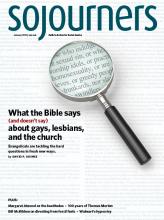TOOTSIE, the 1982 Dustin Hoffman comedy in which a failing actor cross-dresses to win a part on a soap opera, is a lovely, problematic film (and just released in an excellent home edition from www.criterion.com). It’s controversial in some quarters for playing the idea of a man dressing as a woman for laughs: The joke is on any male-bodied person who challenges macho stereotypes. As when The Da Vinci Code attracted criticism for portraying a character with albinism as an insane assassin, like almost every other comparable movie has treated albinism, Tootsie represents a time when the extent of mainstream cinema’s engagement with what it thought constituted “trans” was to portray cross-dressing for laughs. But a cisgender straight character dressing up has little or nothing to do with the real stories of the “T” in LGBTQ.
Cinematic LGBTQ characters seem to evolve one step forward and a half back—beginning with their invisibility, then moving through psychopathy (the “evil queer” of Hitchcock’s Rope still shows up in The Lion King and The Avengers); martyrdom (Kiss of the Spiderwoman, Philadelphia, Brokeback Mountain); safe best friends (The Prince of Tides and My Best Friend’s Wedding); and eventually redemption (Milk, the wonderful recent Pride). The evolution continues: George Carlin’s gay best friend caricature in The Prince of Tides was in good faith, but would not pass muster today. We’re shaking off the idea that LGBTQ characters can only be suffering or sassy.
Read the Full Article

